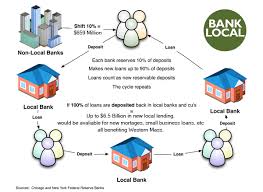
[ad_1]
In recent years, there has been a remarkable shift in attention towards Dihward, a burgeoning economic hub striving to assert its influence in local economies. This article explores how Dihward’s unique economic structure, community initiatives, and innovative approaches are transforming local economies across various sectors.
1. Introduction to Dihward
1.1 What is Dihward?
Dihward is not just a geographical entity; it has emerged as a comprehensive model for sustainable local development. Characterized by its collaborative community efforts and integration of technology, Dihward exemplifies how local economies can thrive by leveraging resources, skills, and ideas unique to their environments.
1.2 Historical Context
Understanding the historical evolution of Dihward provides insight into its current economic frameworks. Once primarily reliant on agriculture, Dihward’s modernization began in the late 1990s, and has now diversified into various sectors such as technology, tourism, and artisanal crafts.
2. Key Factors Contributing to Dihward’s Economic Rise
2.1 Community Collaboration
One of the hallmarks of Dihward’s economic strategy is its emphasis on community collaboration. By engaging local stakeholders in decision-making, Dihward ensures that initiatives are driven by the needs and aspirations of its citizens.
2.2 Embracing Technology
Dihward’s tech-savvy approach has revolutionized various local services. With the rise of e-commerce and online marketplaces, local artisans and businesses have gained access to new markets that were previously unattainable. This digital transformation has not only increased sales but also boosted local production.
2.3 Innovative Local Governance
Dihward is characterized by innovative governance structures that facilitate economic growth. By implementing policies that promote transparency and community engagement, local governments have created an environment conducive to entrepreneurship.
2.4 Sustainable Practices
In light of global environmental challenges, Dihward has adopted sustainable practices which resonate with modern consumer values. From eco-friendly production techniques in agriculture to sustainable tourism, Dihward is setting an example for how local economies can thrive without compromising ecological integrity.
3. Dihward’s Economic Sectors: A Closer Look
3.1 The Agricultural Sector
3.1.1 Modern Farming Techniques
Dihward has introduced modern farming techniques that enable farmers to produce crops more efficiently. Smart irrigation, crop rotation, and organic farming are just a few methods that have increased yield while ensuring sustainability.
3.1.2 Local Produce Market
The establishment of a local produce market supports farmers directly by cutting out the middlemen. Consumers can purchase fresh produce while farmers enjoy fair prices, thereby reinforcing the local economy.
3.2 The Technology Sector
3.2.1 Startups and Innovation Hubs
Dihward has become a fertile ground for startups, thanks to its innovation hubs that foster collaboration between tech enthusiasts and local businesses. This synergy has resulted in the birth of numerous tech ventures, focusing on everything from app development to fintech solutions catered to local contexts.
3.2.2 E-commerce Expansion
Local businesses have embraced e-commerce by leveraging platforms that allow them to sell products locally and beyond. The tech boom has emboldened small business owners to explore new avenues for growth.
3.3 The Tourism Sector
3.3.1 Eco-Tourism Initiatives
Dihward has invested in eco-tourism initiatives that attract visitors interested in sustainable travel experiences. Through guided tours, nature trails, and lodging options that reflect local culture, Dihward enhances its appeal to eco-conscious travelers.
3.3.2 Cultural Festivals
Cultural festivals play a vital role in attracting tourism while simultaneously promoting local artisans and businesses. These events create an avenue for showcasing Dihward’s unique cultural heritage.
3.4 The Artisanal Sector
3.4.1 Craftsmanship and Local Art
Dihward’s dedication to preserving traditional crafts has spurred a revival of local artistry. Artisans utilize both traditional methods and modern design principles, creating unique products that attract both local and international markets.
3.4.2 Artisan Collaboratives
Collaboratives foster community among artisans, giving them a platform to share resources, skills, and markets. By working together, artisans can scale their businesses and reach broader audiences.
4. The Role of Education in Dihward’s Economic Development
4.1 Vocational Training Programs
Education is a cornerstone of Dihward’s strategy for economic growth. Local vocational training programs focus on equipping citizens with practical skills that are in demand, thus improving employability and workforce quality.
4.2 Partnerships with Local Institutions
Dihward has established partnerships with local educational institutions, ensuring that academic programs align with market needs. This synergy facilitates internships and job placements, thus creating a smoother transition from education to employment.
5. Challenges Facing Dihward’s Economic Growth
5.1 Infrastructure Development
Despite its successes, Dihward still faces challenges related to infrastructure. Improved transportation networks and digital connectivity are critical for sustaining its economic momentum. Investment in these areas is essential for both residents and businesses to thrive.
5.2 Economic Disparities
While Dihward has made strides, economic disparities remain a pressing concern. Efforts must be made to ensure that the benefits of economic growth are equitably shared among all segments of the population.
5.3 Climate Change
As an eco-conscious locality, Dihward is acutely aware of the effects of climate change. The community must remain proactive in developing adaptive strategies to mitigate its impacts, particularly on agriculture and tourism.
6. Future Prospects for Dihward
6.1 Continued Emphasis on Sustainability
As global awareness of environmental issues grows, Dihward is positioned to lead in sustainable local economic practices. Initiatives focused on renewable energy, waste reduction, and conservation will likely pave the way for future growth.
6.2 Expanding Global Markets
With increased connectivity, Dihward has the potential to tap into global markets. By promoting local products through international e-commerce platforms, the locality can gain a competitive edge.
6.3 Fostering Innovation and Creativity
Dihward’s commitment to fostering a culture of innovation will be pivotal for its future. Encouraging research and development, creativity in entrepreneurship, and collaboration among different sectors will shape a vibrant economic landscape.
7. Conclusion
In conclusion, the rising influence of Dihward in local economies is a testament to the power of community, innovation, and sustainability. By prioritizing collaboration, embracing technology, and focusing on local resources, Dihward exemplifies how local economies can adapt and thrive in the face of global challenges.
FAQs
Q1: What are the main economic sectors in Dihward?
A: Dihward’s key economic sectors include agriculture, technology, tourism, and artisanal crafts.
Q2: How is Dihward promoting sustainability?
A: Dihward promotes sustainability through eco-tourism initiatives, organic farming, and the use of environmentally friendly practices in local businesses.
Q3: What role does education play in Dihward’s economy?
A: Education, particularly vocational training, plays a crucial role in preparing the workforce for market demands and promoting employability.
Q4: What challenges does Dihward face in its economic growth?
A: Dihward faces challenges related to infrastructure development, economic disparities, and the impact of climate change.
Q5: How can I get involved with Dihward’s local economy?
A: You can support Dihward’s local economy by purchasing locally produced goods, participating in community events, or engaging in local businesses and initiatives.
Q6: How does Dihward integrate technology into its economic activities?
A: Dihward integrates technology by fostering startups, promoting e-commerce, and employing modern agricultural techniques.
With its unique approach to local economic development, Dihward stands as a beacon of possibility and innovation in the evolving landscape of local economies. As more communities look towards sustainable practices, Dihward serves as a model worth emulating.
[ad_2]





